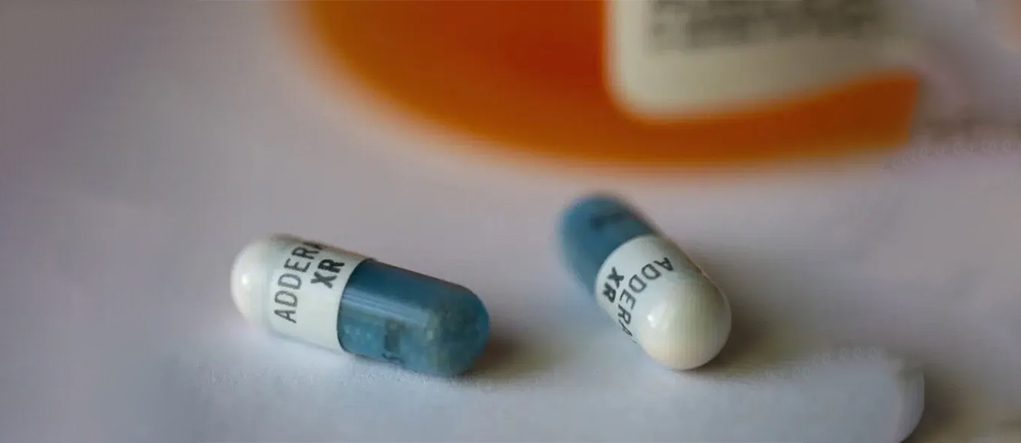Understanding Adderall: Abuse, Risks, and Detox
Adderall is a prescription medication primarily used to treat attention deficit hyperactivity disorder (ADHD) and narcolepsy. It contains amphetamine and dextroamphetamine, which are central nervous system stimulants. While it has legitimate medical uses and can be highly effective when used as prescribed, Adderall misuse and abuse have become a concerning issue in recent years. This article aims to shed light on what Adderall is, how people abuse it, the associated risks, and the process of detoxing from Adderall.


What is Adderall?
Adderall is a brand-name medication that combines amphetamine and dextroamphetamine. These substances stimulate the release of neurotransmitters in the brain, specifically dopamine and norepinephrine. Dopamine plays a crucial role in reward and pleasure, while norepinephrine affects attention and focus. When used as directed by a medical professional, Adderall can help individuals with ADHD enhance their attention and control their impulses.
Medical Uses of Adderall
- ADHD Treatment: The most common use of Adderall is to treat ADHD, a neurodevelopmental disorder characterized by difficulties in attention, hyperactivity, and impulsivity. Adderall can help individuals with ADHD improve their focus and attention, enabling them to perform daily tasks more effectively.
- Narcolepsy: Adderall is also prescribed to manage narcolepsy, a sleep disorder that causes excessive daytime sleepiness and sudden episodes of falling asleep.
How is Adderall Abused?
Unfortunately, Adderall misuse and abuse have become prevalent, especially among young adults and college students. People often misuse Adderall for its stimulating effects and its potential to enhance focus and concentration, leading to its misuse in several ways:
- Non-Prescription Use: Many individuals use Adderall without a prescription or use someone else’s prescribed medication, acquiring it through friends, family, or illegal sources.
- Overdosing: Some individuals take higher doses than prescribed, hoping for increased alertness, focus, or euphoria. This practice increases the risk of overdose and associated health issues.
- Crushing and Snorting: Adderall is sometimes crushed into a powder and snorted to achieve a more rapid and intense effect. This can lead to severe respiratory and nasal problems.
- Combining with Other Substances: Some individuals combine Adderall with alcohol or other drugs to enhance its effects or counteract unwanted side effects. This dangerous practice can have severe health consequences.
Risks Associated with Adderall Abuse
Adderall abuse poses numerous risks to both physical and mental health. Some potential risks include:
- Cardiovascular Issues: Adderall can elevate heart rate and blood pressure, and abuse can lead to heart palpitations, chest pain, and even heart attacks.
- Psychological Effects: Prolonged abuse of Adderall can lead to anxiety, paranoia, hallucinations, aggression, and mood swings.
- Addiction and Dependence: Adderall is addictive, and prolonged misuse can result in dependence, making it challenging to quit without professional help.
- Sleep Disorders: Misusing Adderall can disrupt normal sleep patterns, leading to insomnia and other sleep-related problems.
Detoxing from Adderall
Detoxification from Adderall is the process of eliminating the drug from the body and managing withdrawal symptoms. It’s a crucial step towards recovery and typically involves the following:
- Medical Supervision: Detox should be conducted under medical supervision to ensure safety and to manage potentially severe withdrawal symptoms.
- Tapering: Gradually reducing the dose of Adderall can help minimize withdrawal symptoms and make the detoxification process more manageable.
- Supportive Care: During detox, individuals may receive supportive care to manage symptoms, such as therapy, counseling, and medications to address specific symptoms.
- Healthy Lifestyle: Adopting a healthy lifestyle with proper nutrition, exercise, and adequate sleep can aid in the detoxification process and overall recovery.
Conclusion
Adderall, when used as prescribed, can be highly beneficial for individuals with ADHD and narcolepsy. However, misuse and abuse of Adderall can lead to serious health risks and addiction. Understanding the potential risks and seeking appropriate medical help for detox and recovery are crucial steps for those struggling with Adderall abuse. It’s essential to prioritize health, safety, and well-being when it comes to using any medication, especially one with the potential for misuse and abuse like Adderall.
Why Jintara may be the right Inpatient Rehab for you

Jintara Rehab is a specialized boutique rehab that accepts a maximum of only 10 private clients all over the age of 30-years old, every client having their own 70 square meter apartment with beautiful resort-like facilities and the highest staff ratio of any rehab in Thailand. Jintara is fully licensed by the the Thailand Ministry of Public Health and offers programs from 1-month to 3-months.
If you or someone you care about is considering treatment for substance abuse, we can help. Contact us on info@lannarehab.com or phone/WhatsApp us on +66-094-095-4142.

Author: Darren G Lockie
Founder and CEO of Lanna Healthcare.










